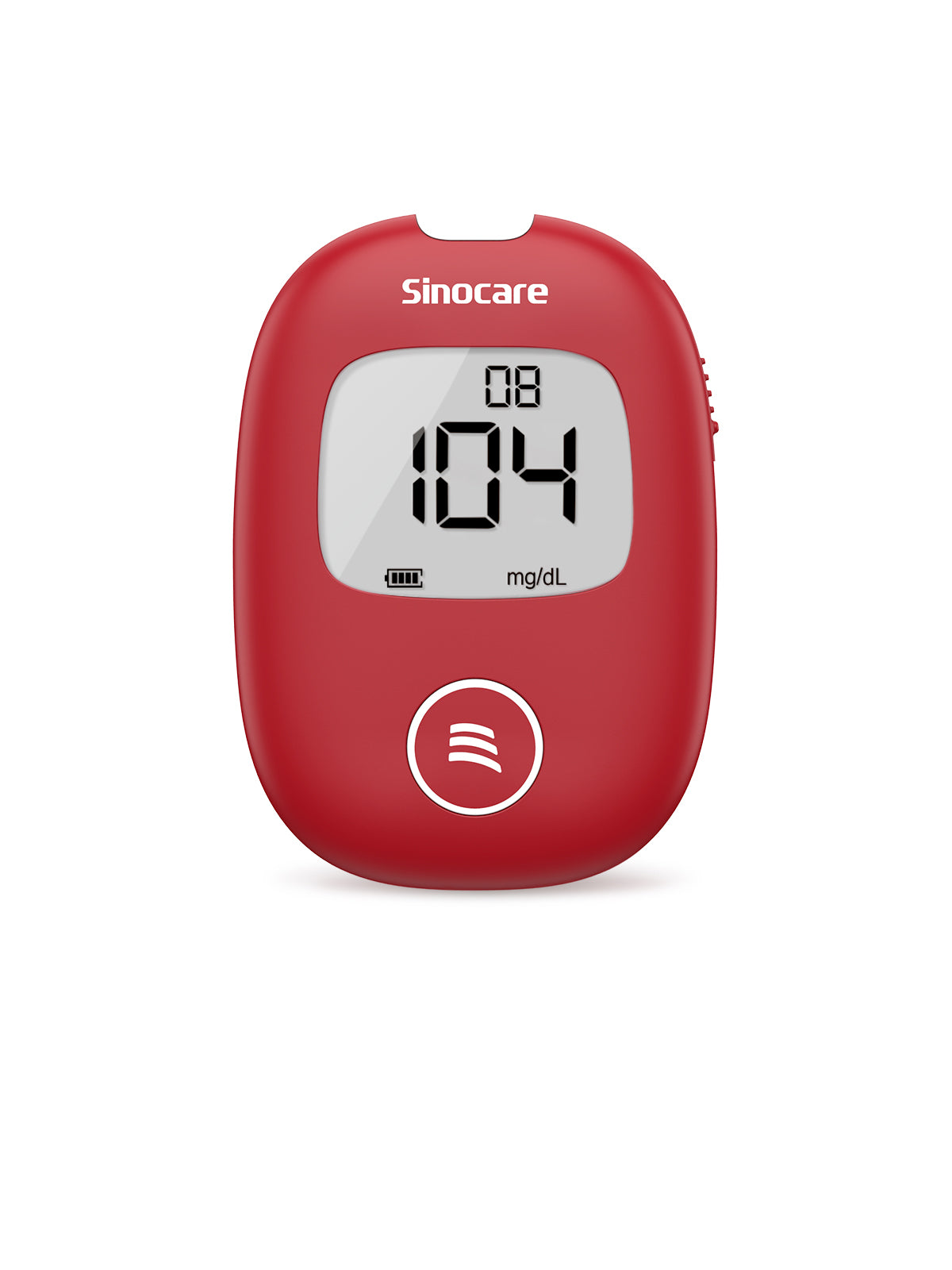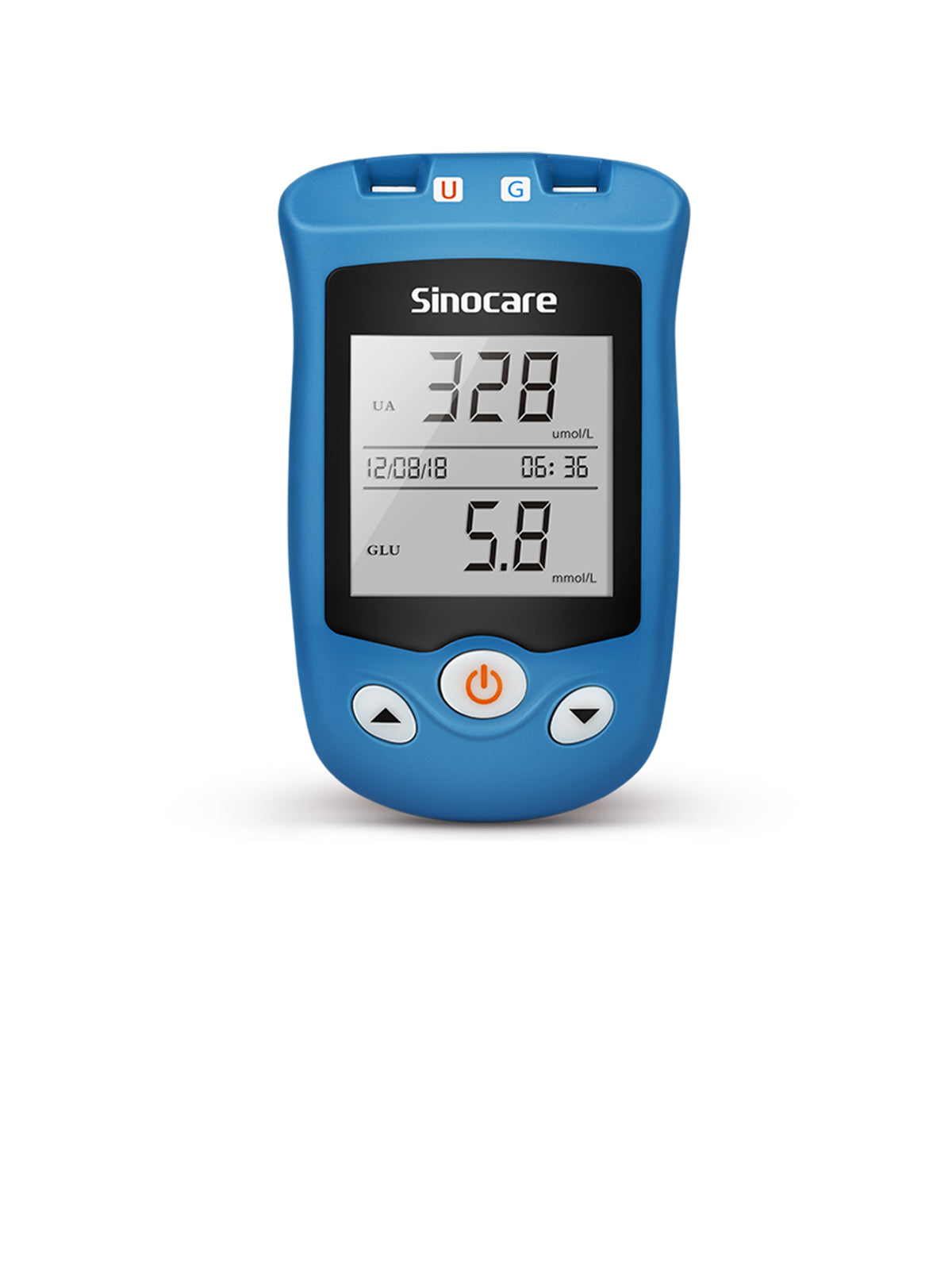Bacon and eggs are a classic breakfast combination in many countries – from the United States to the United Kingdom and beyond. Even though there are some health considerations surrounding this delectable meal, it's hard to resist the sizzling sound of crispy bacon, the golden yolk of perfectly fried eggs, and the mouth-watering aroma that fills the air.
While the high protein content of both foods can help you feel full and satisfied, the high fat and salt content can contribute to negative health outcomes if consumed in excess, especially if you are struggling with diabetes or some other chronic disease.
Enter moderation. You can still enjoy this indulgent treat without compromising your health by practicing portion control and choosing high-quality bacon from reputable sources.
Nutrition Facts and Benefits of Bacon and Eggs
Eggs are a nutrient-dense food, rich in protein, vitamins, and minerals. One large egg contains about 6 grams of high-quality protein, making it an excellent source of this essential nutrient. Eggs also contain vitamin D, critical for bone health, and choline, vital for brain function. [1]
On the other hand, bacon is a high-calorie food loaded with fat and sodium. However, it is also a source of protein: four slices of bacon contain about 10 grams of protein. Bacon also provides important micronutrients crucial for maintaining a healthy immune system. [1][2] Therefore, you can still enjoy this indulgent treat without compromising your health by practicing portion control and choosing high-quality bacon from reputable sources. [3]
The truth is, when most of us sit down to enjoy a plate of bacon and eggs, we might not be thinking about all the ingredients and amount of energy that we're consuming: one portion of eggs and bacon can contain 700 kcal, which is approximately 35% and 30% of the energy needs of an adult woman and man, respectively. [4]
Providing precise nutritional data for bacon and eggs can be tricky due to variations in brands and preparation methods. However, it's important to note that a typical serving can pack a punch with 24 grams of fat, making it a high-fat choice for anyone looking to keep their weight in check.
Additionally, the cholesterol content of 340 mg and the sodium content of 870 mg per serving could be damaging to your heart health. So stay mindful of these factors when considering the frequency and amount of bacon and eggs in your diet. [5][6]
Risks of Eating Bacon and Eggs with Diabetes
Diabetes is a major public health problem. Predictions for the US are that by 2050, one in three adults will be suffering from diabetes. [7][8] Managing it requires making smart food choices, and breakfast is no exception. If you have diabetes (or just trying to improve your diet), you must be careful about consuming excessive amounts of fat and sodium, as those foods can pose a significant risk to your health. [5][9]
Recent research has highlighted the differences in health risks between processed (like bacon) and fresh red meat; processed meat is contributing to a higher incidence of diabetes and various other chronic diseases.
Red meat alone also needs your attention. A 2020 study found that consuming just 50 g of red meat per day can increase the risk of developing diabetes by 11%. [10] This has led to the need for a greater focus on processed meats in dietary and policy recommendations. [7][11]
Eggs, on the other hand, are a more diabetes-friendly option. The high protein content of eggs can help regulate blood sugar levels and keep you fuller for longer, subsequently helping with weight management – another important aspect of diabetes care. [12]
Do Eggs and Bacon Raise My Blood Sugar?
Consuming eggs and bacon does not necessarily raise blood sugar levels.
Eggs do not contain carbs, so they don't significantly influence your blood sugar. The American Diabetes Association even recommends eggs as an excellent food choice for people with diabetes. [8]
But what about adding some bacon to your breakfast plate? Possible added sugars to your bacon can completely change its otherwise low glycemic index and subsequently negatively affect your blood sugar. [13][14]
To sum up, bacon and eggs are not off-limits. However, it's important to be mindful of which bacon you choose, how often you eat it, and how much you eat it. While bacon may not be the healthiest meat option, indulging in moderation is okay. [15]
Eating Advice for Diabetes
Eating habits play a crucial role in managing diabetes. Here are some evidence-based recommendations for diabetes patients:
Eat a balanced diet
A balanced diet that includes fruits, vegetables, whole grains, lean proteins, and healthy fats is important for managing diabetes. [16] It also helps regulate blood sugar levels and reduces the risk of developing complications such as heart disease. [17]
Limit processed and high-fat foods
High-fat and processed foods such as bacon, sausage, and other processed meats should be limited as they can increase the risk of developing diabetes. [10][18] Instead, opt for fresh cuts of meat. [19]
Watch carbohydrate intake
Carbs can significantly impact blood sugar levels, so it is important to watch their intake. [20] Complex carbohydrates such as whole grains, vegetables, and fruits are preferred over simple carbs such as sugary drinks and sweets. [14]
Be mindful of alcohol intake
If your diabetes is well-managed, an occasional alcoholic drink with a meal is usually fine. [21] However, it is important to keep in mind that alcohol adds empty calories and can cause low blood sugar levels when combined with certain medications. It is always best to consult with your doctor before consuming alcohol.
FAQ
What is the Suitable Type of Bacon for Diabetes?
There are more and less healthy choices when it comes to bacon. According to the American Diabetes Association, it's best to choose lower-fat bacon, such as turkey bacon or center-cut bacon. These options are leaner and have fewer calories and saturated fat than traditional bacon. [15]
Turkey bacon also has a different vitamin and mineral content than pork bacon: it contains more vitamins B12, B5, B2, iron, zinc, magnesium and phosphorous. On the other hand, pork bacon is rich in vitamin E and B1, selenium, and contains lower sodium levels than turkey bacon. [22][23][24]
| Type of Bacon | Calories | Protein | Fat |
|---|---|---|---|
| Pork bacon | 226 kcal | 15.9 g | 37.1 g |
| Turkey bacon | 217 kcal | 12.6 g | 16.9 g |
Conventional bacon is also often heavily processed and can include sugars, preservatives, and artificial flavorings. Common ingredients, therefore, include salt, sodium erythorbate, sodium nitrite, and sometimes also smoke flavoring, (brown) sugar, sodium phosphate, potassium chloride, and additional flavoring.
However, some rare, minimally processed sugar-free organic options contain only pork, sea salt, and natural smoke flavor. It is crucial to research and choose the cleanest meat products available. [15]
Bacon and Sausage Alternatives for Diabetic Breakfast
Let's take a look at diabetic-friendly alternatives. First off, consider incorporating lean meats such as turkey, chicken, or even fish into your breakfast routine. These options can be a great source of protein without the added fats found in bacon and sausage. [15]
If you're looking for plant-based alternatives, consider trying tofu or tempeh, both of which are high in protein and low in fat. Plus, they can be seasoned and cooked to mimic the flavors and textures of traditional breakfast meats. [25]
Conclusion
Whether you're a die-hard bacon and eggs fan or just someone looking to enjoy a delicious breakfast, it's important to be mindful of the potential health risks associated with these classic staples. While bacon and eggs can certainly be enjoyed from time to time, it's important to make smart choices and prioritize your health. And remember – balance is the key to success.
References
1. FoodData Central. Accessed March 18, 2023. https://fdc.nal.usda.gov/fdc-app.html#/food-details/749420/nutrients
2. Wintergerst ES, Maggini S, Hornig DH. Contribution of Selected Vitamins and Trace Elements to Immune Function. Ann Nutr Metab. 2007;51(4):301-323. doi:10.1159/000107673
3. Government Dietary Recommendations Government recommendations for energy and nutrients for males and females aged 1-18 years and 19+ years. Published online 2016. Accessed March 18, 2023. www.gov.uk/phe
4. bacon and eggs Ingredients, Calories and Nutritional Information. Accessed March 20, 2023. https://www.fatsecret.com.au/Diary.aspx?pa=mealv&mid=3130114
5. Can Diabetics Eat Bacon? Accessed March 16, 2023. https://diabetesmealplans.com.au/14200/can-diabetics-eat-bacon/
6. Bacon & Two Eggs Standard Breakfast Nutrition Facts - Eat This Much. Accessed March 19, 2023. https://www.eatthismuch.com/food/nutrition/bacon-two-eggs-standard-breakfast,573871/
7. Kouvari M, Notara V, Kalogeropoulos N, Panagiotakos DB. Diabetes mellitus associated with processed and unprocessed red meat: an overview. https://doi.org/101080/0963748620161197187. 2016;67(7):735-743. doi:10.1080/09637486.2016.1197187
8. Association AD. Standards of Medical Care in Diabetes—2016 Abridged for Primary Care Providers. Clin Diabetes. 2016;34(1):3. doi:10.2337/DIACLIN.34.1.3
9. Dardai E. Basics in clinical nutrition: Nutritional support in the diabetic patient. e-SPEN. 2009;4(6):e304-e307. doi:10.1016/j.eclnm.2009.06.020
10. Du H, Guo Y, Bennett DA, et al. Red meat, poultry and fish consumption and risk of diabetes: a 9 year prospective cohort study of the China Kadoorie Biobank. Diabetologia. 2020;63(4):767. doi:10.1007/S00125-020-05091-X
11. Kim Y, Keogh J, Clifton P. A review of potential metabolic etiologies of the observed association between red meat consumption and development of type 2 diabetes mellitus. Metabolism. 2015;64(7):768-779. doi:10.1016/J.METABOL.2015.03.008
12. Abdelhafiz AH, Sinclair AJ. Diabetes, Nutrition, and Exercise. Clin Geriatr Med. 2015;31(3):439-451. doi:10.1016/j.cger.2015.04.011
13. JE H, S A, A M. Physiology, Carbohydrates. StatPearls. Published online October 31, 2017. Accessed March 20, 2023. http://europepmc.org/books/NBK459280
14. Kim IJ. Glycemic Index Revisited. Korean Diabetes J. 2009;33(4):261-266. doi:10.4093/KDJ.2009.33.4.261
15. Bacon and Diabetes. Accessed March 19, 2023. https://diabetesmealplans.com/14200/bacon-and-diabetes/
16. Healthy Eating for Type 2 Diabetes - Harvard Health. Accessed March 19, 2023. https://www.health.harvard.edu/nutrition/healthy-eating-for-type-2-diabetes
17. Astrup A. Healthy lifestyles in Europe: prevention of obesity and type II diabetes by diet and physical activity. Public Health Nutr. 2001;4(2b):499-515. doi:10.1079/PHN2001136
18. Barnard N, Levin S, Trapp C. Meat Consumption as a Risk Factor for Type 2 Diabetes. Nutrients. 2014;6(2):897. doi:10.3390/NU6020897
19. Eating processed meats may raise risk of heart disease and diabetes | News | Harvard T.H. Chan School of Public Health. Accessed March 16, 2023. https://www.hsph.harvard.edu/news/press-releases/processed-meats-unprocessed-heart-disease-diabetes/
20. Diabetes diet: Create your healthy-eating plan - Mayo Clinic. Accessed March 19, 2023. https://www.mayoclinic.org/diseases-conditions/diabetes/in-depth/diabetes-diet/art-20044295
21. Diabetes nutrition: Eating out when you have diabetes - Mayo Clinic. Accessed March 19, 2023. https://www.mayoclinic.org/diseases-conditions/diabetes/in-depth/diabetes-nutrition/art-20047665
22. FoodData Central. Accessed March 20, 2023. https://fdc.nal.usda.gov/fdc-app.html#/food-details/174592/nutrients
23. FoodData Central. Accessed March 20, 2023. https://fdc.nal.usda.gov/fdc-app.html#/food-details/168277/nutrients
24. Turkey bacon vs Pork bacon - Health impact and Nutrition Comparison. Accessed March 20, 2023. https://foodstruct.com/compare/turkey-bacon-vs-pork-bacon
25. 13 Amazing Options for a Vegan Bacon Substitute – Vegan in the Freezer. Accessed March 20, 2023. https://veganinthefreezer.com/vegan-substitute-for-bacon/










Leave a comment
All comments are moderated before being published.
This site is protected by hCaptcha and the hCaptcha Privacy Policy and Terms of Service apply.